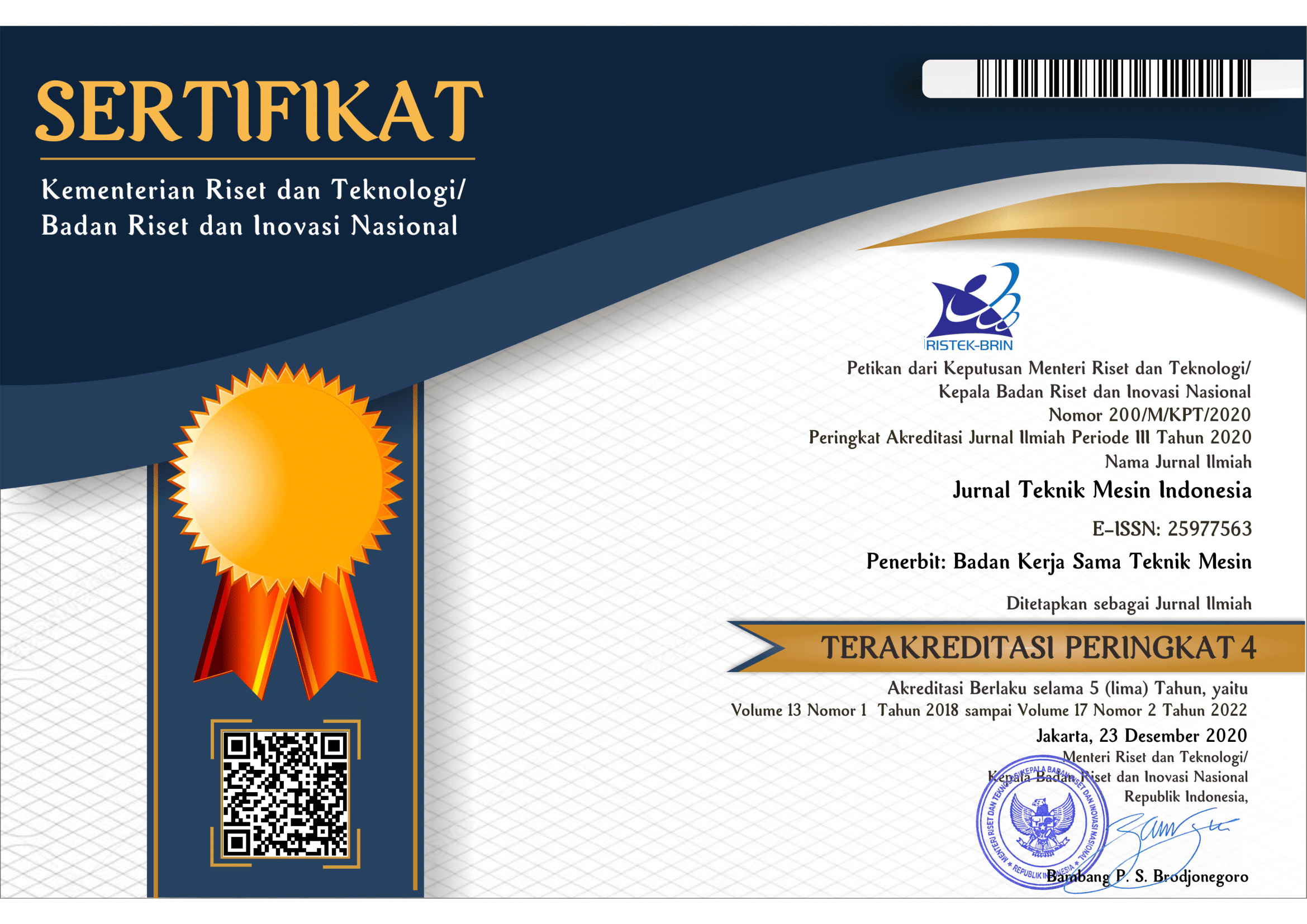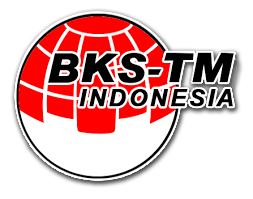The Effect of Funnel Angle on Density, Hardness, and Calorific Value in Briquette Pressing Machine
DOI:
https://doi.org/10.36289/jtmi.v20i1.721Keywords:
briquette pressing, funnel angle, density, hardness, calorific valueAbstract
Efforts to find new energy sources continue, including Renewable Energy Sources (RES). Biomass is an alternative source of renewable energy and one example of biomass is briquettes. Briquettes are solid fuels made from renewable organic materials derived from plants such as mangrove wood, coconut shells, and palm kernel shells. Thus, briquettes can serve as an alternative energy source to replace fossil fuels like coal. In this study, briquettes were produced using a briquette pressing machine with a screw conveyor method. The briquette materials used were palm kernel shell charcoal dan mangrove wood charcoal, with variations in funnel angles to observe the impact on briquette quality. The funnel angles tested were 55̊, 60̊ and 70̊. Three tests were conducted : density, hardness and Water Boiling Test (WBT),with five data points for each test. The best results were obtained for mangrove wood briquettes at a 55̊ funnel angle, with an average density of 1,12 grams/cm3, average hardness of 38,34 kg/cm2 and average WBT value of 5.785,02 kJ/kg. Funnel angle significantly influenced the quality of the produced briquette.










